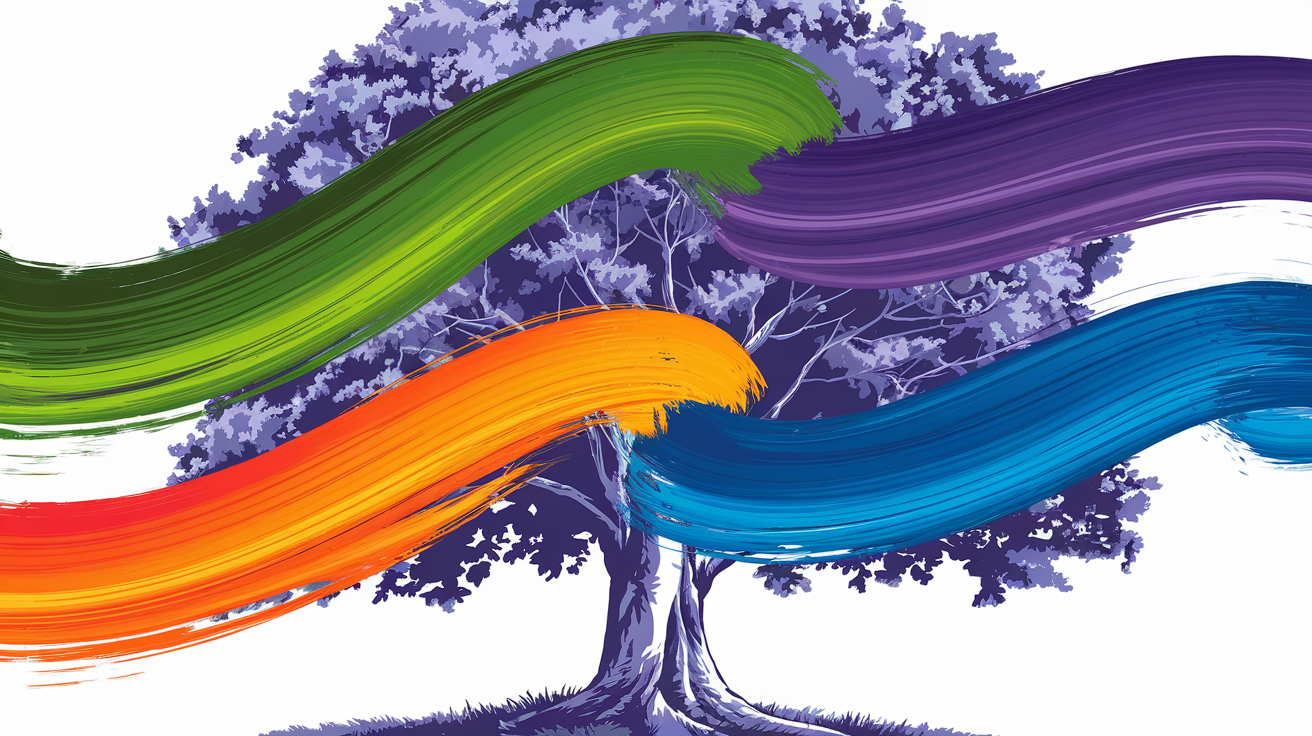You’ve got names. Dates too. Big deal.
Your family tree might look impressive, but it’s as dry as week-old toast. Time to juice it up.
Let’s transform that boring list of ancestors into a vibrant tapestry of lives lived.
Ready? Let’s roll.
Dive into Historical Context
Your great-grandpa wasn’t just a name on a census. He was a man living through the Great Depression. Struggling. Surviving.
Research the big events. Dig into local history. It matters.
Did Grandma live through WWII? How did rationing affect her life? Did she work in a factory while the men were at war?
Context is king. Use it.
Don’t just know when your ancestors lived. Understand how they lived.
Was your great-great-grandfather a farmer during the Dust Bowl? Imagine the desperation. The daily struggle.
Social norms change. Your ancestors’ choices might seem strange now. But in context? They make sense.
Maybe Great-Aunt Mildred never married. Scandalous in her time. But after losing her fiancé in WWI? Understandable.
Dive deep. Connect the dots. Make history personal.
Explore Family Heirlooms and Photos
That dusty old photo album? Gold mine.
Learn to date those pics. Colorize them. Make them pop.
Got Great-Aunt Edna’s locket? There’s a story there. Find it.
Documents aren’t just facts. They’re windows into lives lived. Look deeper.
Photos tell stories. But you gotta know how to read them.
Those stiff poses? That’s the 1800s for you. Long exposure times meant no smiles.
See that fancy chair your ancestor is posing with? Probably not theirs. Studio prop. Shows what they aspired to.
Colorizing old photos isn’t just cool. It brings your ancestors to life.
Heirlooms have tales to tell. That chipped teacup? Maybe it’s all that survived the journey from the old country.
Great-grandpa’s pocket watch? Check for inscriptions. Might reveal a secret love affair.
Don’t just preserve these treasures. Investigate them. They’re your link to the past.
Conduct Family Interviews
Grandpa’s got stories. Ask him. Now.
Time’s ticking. Don’t wait.
“What was your first job?” Boom. Instant window into a different era.
Family legends are gold. But verify. Memories are tricky things.
Got conflicting stories? That’s normal. Families are complicated.
Here’s a pro tip: Buy my book “170 Questions for Family Interviews“. It’s a game-changer for interviewing family members.
Don’t just ask about facts. Ask about feelings. Smells. Sounds.
“What did your childhood home smell like?” Hits different than “Where did you grow up?”
Record these interviews. Future you will thank me.
And remember: Every conversation is an opportunity. Listen. Really listen.
Investigate Occupations and Daily Life
Your ancestor was a cooper. So what?
So what? So everything.
A cooper made barrels. Essential job back then. Respected. Skilled.
Imagine the daily grind. The smell of wood. The satisfaction of a well-made barrel.
What tools did they use? How long did it take to learn the trade?
Daily life wasn’t just work. What did they eat? How did they dress?
Your farming ancestors? Up at dawn. Hard labor all day. No weekends off.
City dwellers? Different challenges. Crowded tenements. Noise. Pollution.
Reconstruct their days. Their challenges. Their triumphs.
This isn’t just history. It’s your history.
Uncover Migration Stories
Your family didn’t just appear where they are now. They moved. Why?
Economic opportunity? Political unrest? Personal scandal?
Map it out. Visually. See the journey.
Each move tells a story. Dig into it.
Great-grandpa left Ireland during the potato famine? Imagine the desperation. The hope.
Your ancestors were part of the Great Migration? That’s a powerful story of seeking a better life.
These journeys shaped your family. Understand them.
How did relocations change family dynamics? Who was left behind?
Every mile traveled is a story waiting to be told.
Delve into Cultural and Religious Traditions
Your ancestors weren’t just names. They were people with beliefs. Traditions.
Those beliefs shaped everything. How they lived. How they died.
Did religious persecution drive them to a new land? That’s huge.
How did cultural practices evolve over generations? What was kept? What was lost?
Maybe your Italian ancestors brought their cuisine to America. But how did it change?
Religious beliefs influenced major life decisions. Marriages. Careers. Education.
Understanding these traditions? It’s like finding the operating system your ancestors ran on.
Don’t just note their religion. Understand how it impacted their daily lives.
Cultural traditions are the heartbeat of family history. Feel it.
Explore Military Service Records
Your ancestor served in a war. But what does that really mean?
It means everything.
Find those military records. They’re treasure troves.
What battles did they fight in? Research those conflicts.
A soldier’s life isn’t just combat. It’s long marches. Boring camps. Letters home.
My 2x great-grandfather’s Civil War pension file has medical records about his hemorrhoids. Perfect conversation starter at my next family gathering.
How did military service change them? Their families?
Maybe they never saw combat. Still important. Support roles shaped the war effort too.
Draft records can tell you a lot. Even for those who didn’t serve.
Military service often meant travel. New experiences. How did that impact their worldview?
These records aren’t just about war. They’re about people. Your people.
Investigate Land and Property Records
Land records. Boring, right? Wrong.
These documents tell stories of struggle. Success. Failure.
Map out where your ancestors lived. Visualize it.
Did they own land? Big deal back then. Status symbol.
No land ownership? What did that mean for their social standing?
Census records do more than count people. They paint pictures of homes.
How many people under one roof? What does that say about their lives?
Property records can reveal family dynamics. Who inherited what? Why?
These aren’t just dusty old documents. They’re keys to understanding your ancestors’ world.
Analyze Newspaper Archives
Newspapers aren’t just for major events. They’re windows into daily life.
Social columns. Obituaries. Wedding announcements. Gold mines of information.
Your ancestor mentioned in a local paper? That’s a big deal.
Look for context around family stories. Verify those old tales.
Ads can tell you about local businesses. Prices. What was important to people.
Natural disasters? Local elections? These shaped your ancestors’ lives.
Don’t just skim headlines. Read between the lines.
These aren’t just old news. They’re your family’s story, told in real-time.
Reconstruct Family Relationships and Dynamics
Families are complicated. Always have been.
Letters and diaries? They’re emotional gold.
Read between the lines. What’s not being said?
Family structures change over time. Understand the norms of each era.
Handling family secrets? Be sensitive. But be honest.
Economic data isn’t just numbers. It’s family dynamics in disguise.
Who lived with whom? Why? These arrangements tell stories.
Don’t just collect names. Understand relationships. The good, the bad, the messy.
This is where your family history gets real. Embrace it.
Create Engaging Family Narratives
You’ve got the facts. Now tell the story.
Don’t just recite dates. Paint pictures with words.
Balance fact and narrative. Be truthful, but compelling.
Ethical considerations matter. Not every story needs to be told.
Write it down. All of it. Future generations will thank you.
Use sensory details. Make your ancestors come alive on the page.
This isn’t just genealogy. It’s legacy-building.
Your family’s story is unique. Tell it that way.
Remember: You’re not just a researcher. You’re a storyteller.
Dig Deeper
Names and dates are just the beginning. The real story? It’s in the details.
You’re not just filling in blanks on a family tree. You’re breathing life into history.
Your ancestors were real people. Complex. Flawed. Fascinating.
Now go. Dig deeper. Ask questions. Tell stories.
This isn’t just about the past. It’s about understanding who you are.
Your family’s story is waiting. Go find it.
Additional Resources
Want more? Check these out:
- “Bringing Your Family History to Life Through Social History” by Katherine Scott Sturdevant
- “Writing Your Family History” by Gill Blanchard
- “170 Questions for Family Interviews” by Marc McDermott (me)
- Newspapers.com – Extensive archive of historical newspapers
Remember, these are just starting points. The real adventure begins with you.


